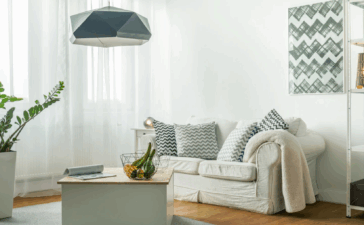If you want to learn more about heat pumps for homes, you should click here for a beginner’s guide explaining everything you should know.
Heat pumps have become increasingly popular in recent years. There’s a number of reason for this, including the fact that they heat and cool homes relatively efficiently.
With so many different heating and cooling options, it’s important to know the difference between furnaces, boilers, and heat pumps, so that you can know what’s best for your home.
This article offers a basic overview of things you need to know about heat pumps for homes. Keep reading for a quick education that might help lower your energy costs.
What is a Heat Pump?
Furnaces and boilers burn fuel to heat the air. Heat pumps are different. They transfer heat by circulating refrigerant through a cycle of evaporation and condensation, which involves a compressor pumping the refrigerant between a pair of heat exchange coils.
One coil evaporates the refrigerant at low pressure, while absorbing heat from the surroundings. The refrigerant gets compressed on its way to the other coil at high pressure, and then releases the heat that’s been absorbed.
Is a Heat Pump Right for Your Home?
Not every home is well-suited for a heat pump system. They only run efficiently when outdoor temperatures remain above freezing. So if you live in an area that experiences extreme cold, this probably isn’t the right system for you.
Keep in mind that you can still install a heat pump system in your home, it just shouldn’t be your primary source of heat.
The next thing to consider is your ductwork. Heat pumps work best with the types of ductwork used for a conventional forced-air system. So if you’re transitioning from forced-air to a heat pump, you should be in good shape.
Here is a resource where you can find important questions about your heat pump, such as how long it will last.
Pricing
Now let’s discuss the costs involved in installing and owning a heat pump system.
You’ll need to consider the price of the system, labor costs, and the price of components.
The price of the system will depend on a few factors, including the type of heat pump and its capacity. The two types of systems are ductless mini-split heat pumps, and geothermal heat pumps. Geothermal pumps are the more expensive of the two.
Obviously, installation costs significantly increase the price of the system. And any additional components you that you choose to add to your system can easily take the total cost well beyond $10,000, depending on the size of your home and your heating and cooling needs.
A Guide to Heat Pumps for Homes
When you’re considering the right heating and cooling system for your home, it’s important to be well-informed. This article shows you that traditional furnaces are best for homes in cold climates, whereas you should consider heat pumps for homes in milder climates.
If you found this article informative, please check out our website for more great tips and advice for making your home as energy-efficient as possible.






